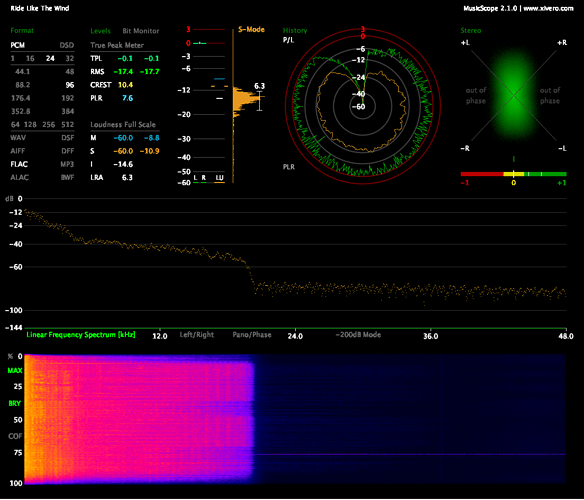Thank you Yoda for doing this. Its a great piece of work. In this case, I am waiting for the doubters to apologize for their behavior.
That said, if there are holes in the provenance procedure, I have no issue with pointing them out in a courteous way, so that they can get fixed. A nice email to MQA would probably get read and answered. If its possible to produce a fake MQA file on you PC, I am sure they would like to know.
We should also realize that the state of the Masters I have been told, is in various states of repair. Some are badly damaged, there was the fire, some were stored by the artist properly and some not, and some are in the land fills. I am surprised that its possbile to go back an read documentation at all on recordings made 10, 30, 50, 70 years ago. I also expect that there would be errors made, and its appropriate to document them. If you have proof of something amis, just post the details, no need to get hostile and accuse someone of something that be right. There are 2 sides, like this case. If there are more facts, lets hear them. I hope Yoda does not get attacked.
I also have been in audio for a short time as a Manufacturer 35 years ago, and as a hobbyist for a lot of what has gone on. I remember the promise of CD, DVD, SACD, Higher Rez, DSD, etc etc, so I can understand why some are sceptical. The SQ has never lived up to the hype. I also realize that we have been lied to on many fronts, about food, oil, medicines, pesticides, the fire, and that was clearly wrong and this is why many take that tact.
Thanks @Danny for providing MQA, and Bob Stuart and Peter Craven for the research and development. For my ears, and I realize that maybe not for all, its really wonderful.
